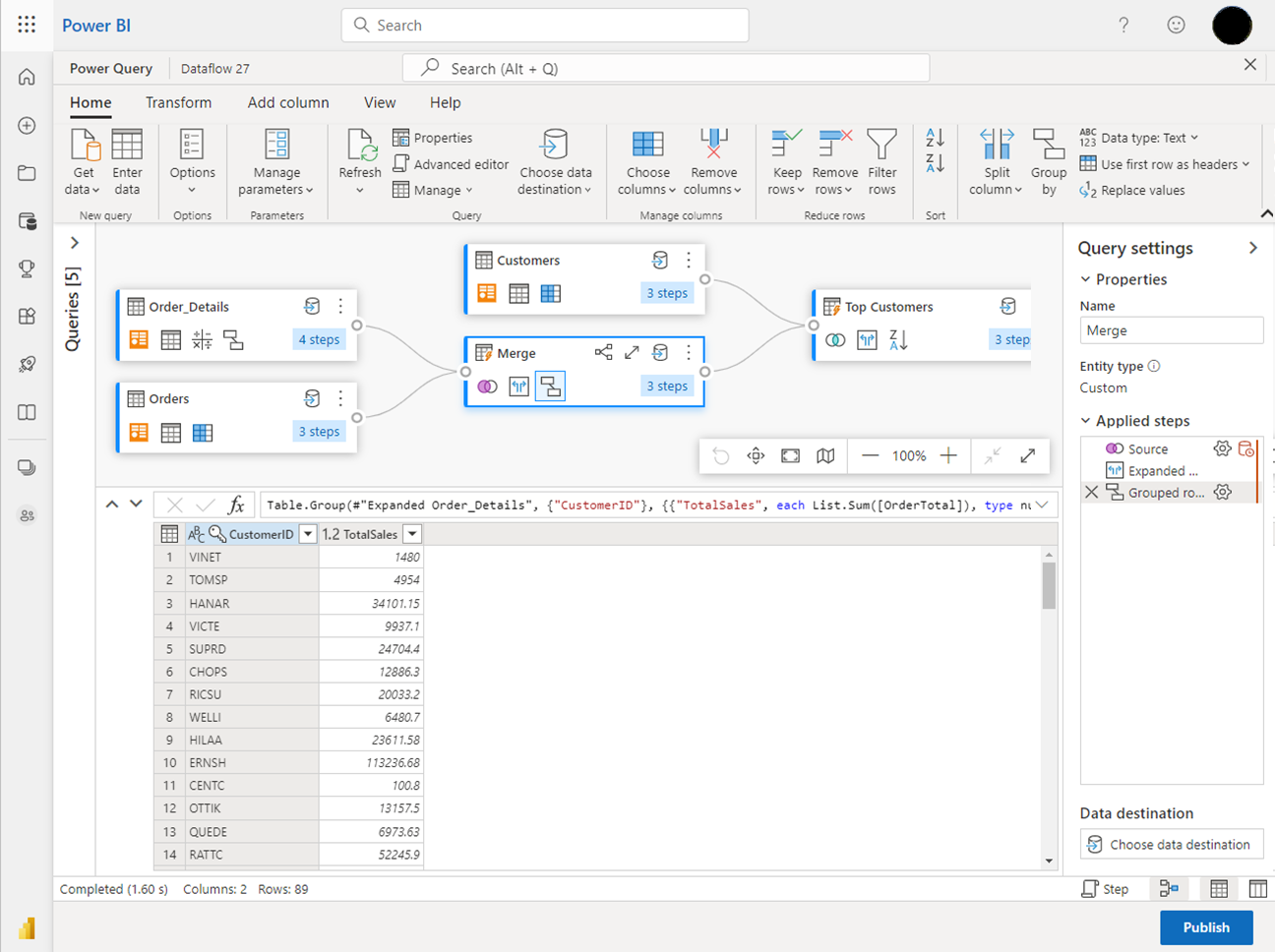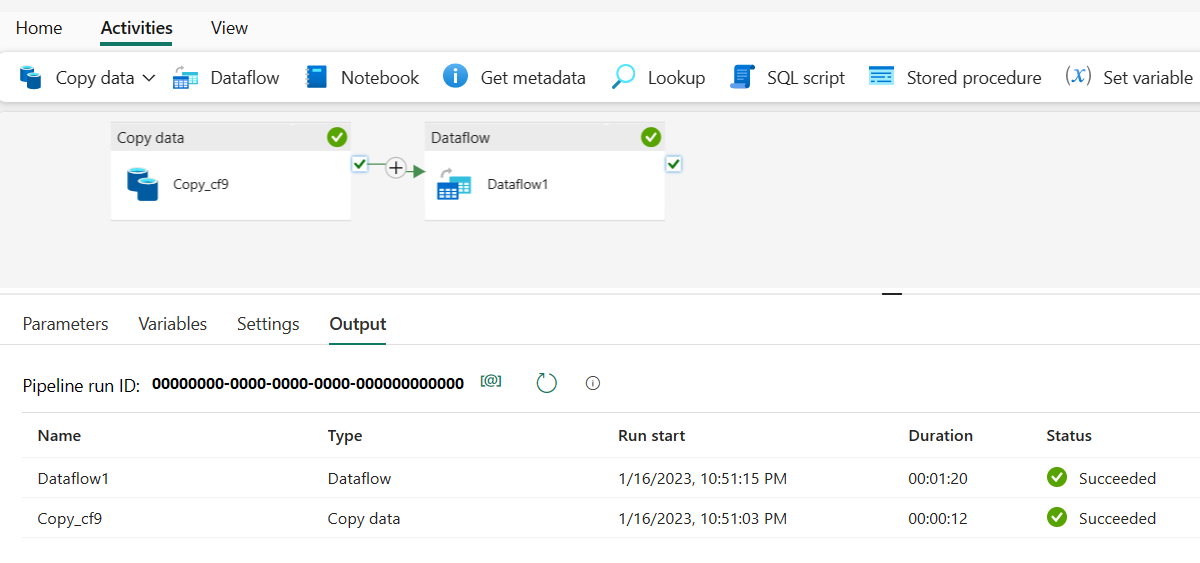What is Data Factory in Microsoft Fabric?
Data Factory empowers you with a modern data integration experience to ingest, prepare and transform data from a rich set of data sources (for example, databases, data warehouse, Lakehouse, real-time data, and more). Whether you are a citizen or professional developer, you will be able to transform the data with intelligent transformations and leverage a rich set of activities. We can create pipelines to execute one or more activities, access data sources or services through linked services, and after creating a pipeline, we can add triggers to automatically run our processes at specific times or in response to changing scenarios. With Data Factory in Microsoft Fabric, we are bringing fast copy (data movement) capabilities to both dataflows and data pipelines. With Fast Copy, you can move data between your favorite data stores blazing fast. Most importantly, Fast Copy enables you to bring data to your Lakehouse and Data Warehouse in Microsoft Fabric for analytics.
There are two primary high-level features Data Factory implements: dataflows and pipelines.
- Dataflows enable you to leverage more than 300 transformations in the dataflows designer, letting you transform data easier and with more flexibility than any other tool - including smart AI-based data transformations.
- Data pipelines enable you to leverage the out-of-the-box rich data orchestration capabilities to compose flexible data workflows that meet your enterprise needs.
Dataflows
Dataflows provide a low-code interface for ingesting data from hundreds of data sources, transforming your data using 300+ data transformations. You can then load the resulting data into multiple destinations, such as Azure SQL databases and more. Dataflows can be run repeatedly using manual or scheduled refresh, or as part of a data pipeline orchestration.
Dataflows are built using the familiar Power Query experience that's available today across several Microsoft products and services such as Excel, Power BI, Power Platform, Dynamics 365 Insights applications, and more. Power Query empowers all users, from citizen to professional data integrators, to perform data ingestion and data transformations across their data estate. Perform joins, aggregations, data cleansing, custom transformations, and much more all from an easy-to-use, highly visual, low-code UI.
Data pipelines
Data pipelines enable powerful workflow capabilities at cloud-scale. With data pipelines, you can build complex workflows that can refresh your dataflow, move PB-size data, and define sophisticated control flow pipelines.
Use data pipelines to build complex ETL and data factory workflows that can perform many different tasks at scale. Control flow capabilities are built into data pipelines that allow you to build workflow logic, which provides loops and conditionals.
Add a configuration-driven copy activity together with your low-code dataflow refresh in a single pipeline for an end-to-end ETL data pipeline. You can even add code-first activities for Spark Notebooks, SQL scripts, stored procs, and more.
Related content
To get started with Microsoft Fabric, go to Quickstart: Create your first Dataflow Gen2 to get and transform data.
Feedback
Coming soon: Throughout 2024 we will be phasing out GitHub Issues as the feedback mechanism for content and replacing it with a new feedback system. For more information see: https://aka.ms/ContentUserFeedback.
Submit and view feedback for

